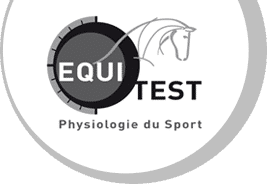In horses like in human athletes, training induces positive adaptations of the organism which make it more resistant to fatigue and improves its performance. However, sometimes, for example, in case of excessive training load, negative adaptations can be observed such as weight loss or muscular damage. Studying the impact of training is observing and describing these phenomena in real sports training conditions in order to offer preventive solutions.

Body weight loss after competitions
The competitions induce significant dehydration which should be corrected during the recovery phase. The objective of this study is to quantify this water loss and to study the factors of variation (outside temperature, transport, stress) in Trotters.

Abnormal muscular responses
Abnormal muscle responses to exercise are evidenced by an excessive increase in muscle enzymes after exercise. The objective of this work is to identify a nutritional cause for this phenomenon.

Importance of body composition
As with a human athlete, the horse’s body composition (% lean mass and fat mass) is an important factor in performance. It impacts determining physiological parameters such as V4 and V200.

Maladaptation to training in young race horses
Young racehorses have high energy requirements related to their incomplete growth and early training. Signs of maladaptation are sometimes observed during this phase.

Harnessed versus mounted exercise demands
At equal speed on the same track, the efforts of Trotters harnessed or mounted have different physiological and biomechanical implications.







